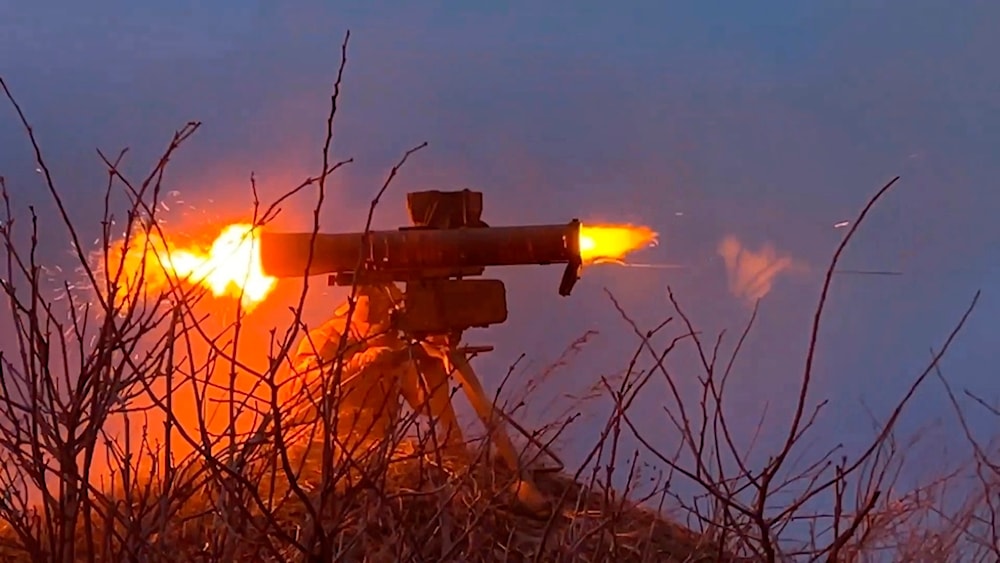Ukraine faces tough Spring amid potential renewed Russian offensive
Ukrainians blame global politicians for their hardships as Western allies, preoccupied with various issues like the Middle East and upcoming elections, are failing to provide adequate support.
-

In this handout photo taken from video released by the Russian Defense Ministry Press Service on Tuesday, March 26, 2024, a Russian army soldier fires a Fagot anti-tank missile system toward Ukrainian positions at an undisclosed location. (Russian Defense Ministry Press Service photo via AP)
An opinion piece by The Economist on Thursday detailed that the coming of the Spring season promises to be difficult for Ukraine as Russia is likely to mount a new offensive, as it did in 2023.
Despite the temporary respite provided by warmer weather, Ukraine's ability to repel a potential Russian offensive seems much less certain now than it did a year ago.
"That is why it urgently needs to mobilise more troops and build more robust front-line defences," The Economist said.
Challenges Ahead
According to the op-ed, Ukrainians blame global politicians for their hardships as Western allies, preoccupied with various issues like the Middle East and upcoming elections, are failing to provide adequate support.
This is exemplified by the decision of Trump-supporting Republicans in Congress to block a $61 billion military aid package, resulting in Ukraine's soldiers facing shortages and being outgunned by Russia, as evidenced by the overwhelming number of drones and missiles launched against them.
It further notes that the political deadlock in the US increases the risk of Russia penetrating Ukraine's weak defenses, while European efforts, despite rhetoric from leaders like Macron, lack substantial support, with Germany's reluctance to provide crucial weaponry like Taurus missiles.
Read more: How fragile are Ukraine's defense lines?
Europe's failure to meet aid targets and internal disputes, such as blocking Ukraine's agricultural exports, further hinder effective assistance to Ukraine.
Blame and Shortcomings
While Ukraine can't solely fault its allies, it's also culpable for its own shortcomings, notably in manpower, the report adds.
As Russia prepares for further mobilization, Ukraine's efforts to recruit new soldiers are hindered by bureaucratic hurdles and financial constraints, exacerbated by Zelensky's reluctance to push for necessary reforms.
It notes that Ukraine's delay in reinforcing its defensive positions is partly understandable, given the government's aspiration for a new counter-offensive and fear of the current frontline solidifying into a permanent border.
Zelensky has sought to avoid this scenario, but with mounting risks, the reinforcement efforts have begun belatedly, prompting concerns over the potential consequences of the delay.
Read more: Is Ukraine at an impasse in its war against Russia?

 3 Min Read
3 Min Read









